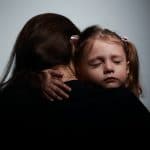
It’s not just a phase for children between the ages of three and six; occasionally, it takes some time to pass.
School refusal: how do you treat it? And how can you differentiate between treating it and spoiling your child?
- Your child is suddenly afflicted by a crying fit in the morning, or complains of illogical symptoms of illness after a night of peaceful sleep. Usually, they do not expound on their fear of going to school beyond these symptoms.
- This is a very familiar state for children from nursery school until the age of seven. It is usually associated with separation anxiety regarding long hours apart from their mothers after a life lived solely in the warmth of home. In addition, they are experiencing the fear of facing a new, “unknown” world.
- In this regard, you must join forces with the caretakers at the kindergarten, which will make your child feel loved by their teachers and feel that they have hours of entertainment ahead of them with their companions there. It is a good idea, as well, to continuously repeat to them that you will be waiting for them when they leave.
- Do not show concern even when your child begins to display physical symptoms of school refusal, for example a cough or vomiting the night before school.
- Always strive to show understanding and affection, even if you are forced one or more times to accept the results of this fear, which may mean letting your child stay at home. However, do not exaggerate the importance of the physical symptoms. Be stern so that your child understands that they are staying at home because they are somewhat sick but that they have to get better because they will go back to school the next day.
- Always speak to them about how likeable they are at school and, if possible, accompany them to school in the morning, and tell them, for example, “I’ll see you in a few hours”.









